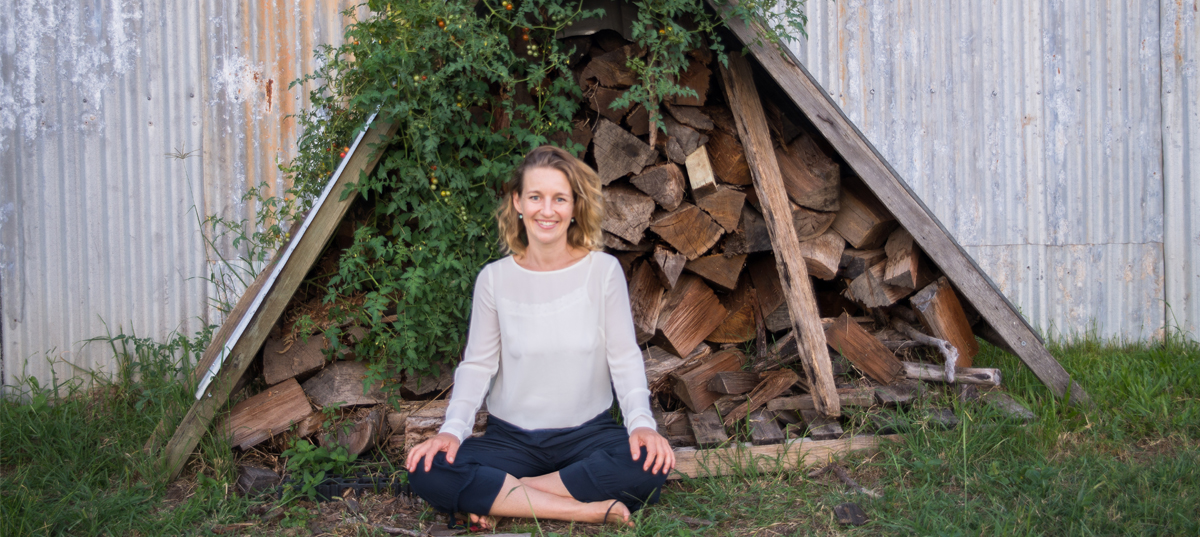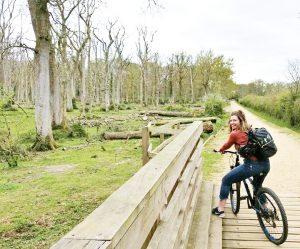
A little more about Celia Roberts
Recently a client who found immense value in attending a retreat at the Upper Brookfield Sanctuary interviewed Celia. Holly Harman, now a Yoga teacher and mental health advocate offering holistic wellbeing advice, spent some time learning a little more about Celia. The discussion centred on Celia's history and life choices that led to creating a space for others to learn and embrace a culture of holistic wellbeing.
We are excited to share Holly's interview:
Who are you?
My name is Celia Roberts and I have two children, two pet goats, two chickens and a kelpie. Together we live on an acreage property as a family that houses a yoga retreat studio and teacher training centre. I am a Senior Yoga teacher by trade and I am most in my element when teaching meditation. I love bush walking meditations on our property and can go for miles on end with great joy. I really dearly love people from all walks of life and find their stories so very interesting. Minimalism and simplicity bring me the deepest joy, and hugs too of course!
Brief History
I have had a happy little childhood with two sisters and great parents, growing up in Bardon, Brisbane. I started yoga when I was 19 after my sister died suddenly at 15 years. I was recovering from such deep grief, but was also feeling righteous about not taking anti-depressants to heal my own grief, as was recommended to me by a psychiatrist at the time. My sister died from taking a drug to heal her mild depression. This drug now proven to cause suicidal tendencies in young minds (and hallucinations) and is no longer given to teenagers, which is a good thing.
I continued yoga all through university and into my pregnancy with my first child. After her birth, I decided to seek out a flexible job that I could remain passionate about and accepted with grace that I loved and practised yoga daily. This seemed like an awesome way to go and I was studying other complementary health therapies at the time that were easy to integrate into yoga. Almost two decades on, I have co-founded the Yoga and Integrative Medicine Institute with long time gal pal and now best mate, Nicole Loxley.
What is the biggest misconception about yoga?
That you have to be flexible. Yoga is really about the mind - and being wisely compassionate.
What are your stress busters?
Walking meditation, gardening, swimming, sunshine, yoga.
What is yoga to you?
Just an amazing way to feel actually.
What would you say to someone who is thinking about trying yoga?
It is a must! Never give up until you find the right teacher. The right teacher is out there for everyone.
How does yoga help with mental health?
There are so many ways: learning to control the thoughts via the breath, the present moment or directing the mind to another object. It also improves the health of the nervous system (vagal tone) and teaches us how to control heart rate which is really important in stress, trauma and anxiety. The neuroscience research behind it all is also very impressive. Yoga is a force of its very own.
Can we use yoga in conjunction with or instead of medications for some mental ill health conditions?
Yes, but you must really get the assistance of a medical professional to come off medication and replace it with the complementary therapies. I have seen students try and come off medications too quickly, only to be quite disturbed by the experience. When it is down slowly and with the help of a few professionals, it can work very well.
What is something you would like the human race to discover in your lifetime?
That contentment lies within and something as simple as the breath can take you there. Simplify, minimise - it really is the key to a better life. I think we could all try and do less 🙂
You blend eastern science with western science seamlessly when you teach, was this a conscious choice?
Yes, definitely. I studied a Biomedical Science degree at University and believe that much of what science has now produced on the efficacy of the yoga and meditation world has increased its spread and normality world wide. I really am grateful for that, as I believe in these practices so much. I also believe that doctors are healers too, much like the Ayurvedic doctors and yogic healers that we may aspire to become. No one can physically heal a heart like a doctor can in surgery! That is incredible work and they are devoted to saving lives. As yogic healers, we focus on prana. Our science is prana (or energy medicine) and no one can help as much as we can through asana, breath, posture, emotional release and trauma sensitive yoga. We each have our part to play.
Why do you think people are ok with not living optimally?
Through busyness, laziness, lack of discipline or grief/depression people forget what is feels like to feel amazing.
Do you practice gratitude?
Certainly do - daily as I wake and rest in the waking/dreaming state both morning and night. For me, it comes naturally at those times. Even throughout the day - I find myself grateful for so many things.
What is the most interesting piece of research you have read recently?
Awhile back I commented on this and still find this most fascinating: Long term meditators and yogis are some of the best in the world at reading the intricate micro-expressions on people's faces. “They do better than policemen, lawyers, psychiatrists, customs officials, judges — even Secret Service agents,” says Paul Ekman. The meditators brain and body is so inherently linked - every little tiny muscle.
More recently, (and I love this fact):
A weak handshake can predict death better than blood pressure. Yoga improves grip strength, as does pranayama, but to a lessor degree. Further more, in Ayurveda, our hands are considered a reflection and extension of our heart. We take the pulse at the wrist to diagnose the nine levels of consciousness in a patients mind, body and heart. In Buddhism, it is said that our hands hold our karmic fate and in Chinese medicine, the heart meridian starts underneath our arm pit and runs towards our little finger. The correlation is high in the ancient traditions.
Yoga assists with circulation, cardiovascular health, strength of nervous system and actually halts the ageing process by producing telomerase which protects our DNA from damage. This quote from the ABC explains grip strength importance further:
It's unclear why the strength of the muscles in your hand can predict the likelihood of death, though Leong speculates that grip strength might indicate 'how well your nervous system functions to maintain your balance'. In the paper the authors also suggested that grip strength may reflect blood vessel health, which would explain the correlation with cardiovascular health. (Source)
Just remember - yoga and pranayama improve grip strength!
What is one book that has changed your perception on something?
Altriusm By Matthieu Ricard. He really explains everything about meditation, neuroscience and how internal change creates social change and environmental change. Fascinating read and so brilliantly researched.
What do you think is the number one thing affecting people's mental health?
Hard question.
Wrong thinking. Wrong thinking and perception can be inherited through our childhood experience and through our genes.
After this, our digestion. This includes not only our physical digestion (gut health/microbiome) but also the correct mental digestion of our life experiences.
Good posture is also important and more recently, too much technology has a more recent part to play in depression, anxiety and poor posture which affects breathing, our nervous system and the mind.
Can Ayurveda help with mental health?
Yes, its goal is spiritual enlightenment, but there are herbs, dietary and lifestyle changes that make all the difference. Ayurveda believes in work, sleep and play! 8 hours each per day. So simple.
What do you hope for yoga in the future?
Everyone finds their own way of practising meditation, mindfulness, compassion or yoga.
How do we bring the benefits of yoga to the male population?
Education and health promotion.
How have you seen yoga change over the years?
Very much. Traditions are good to uphold, but creativity and innovation leads the way forward. “Best to hold both ends of the string lightly” – a quote given to me by my much loved teacher, Leanne Davis, who is also the wise and compassionate Yoga Australia President.
Somewhere in the middle – I will meet you there.
May your whole life be truly blessed by the teachings – Celia Roberts
A little more about Holly Harman
With people more likely to suffer from Mental Ill Health at some point in their life than develop diabetes, heart disease or any type of cancer, I found it hard to ignore such a common but taboo health concern. Being someone who has moved through Mental Ill Health at different stages of my life I have built up an arsenal of coping mechanisms and preventative techniques through hard work and a want for a better life. My goal is for people to understand the difference between Mental Health and Mental Ill Health and actively participate in their own life.
 Yoga Teacher
Yoga Teacher
First Aid Officer
Mental Health First Aid Officer
Mind Apples Trainer
Positive Psychology Advocate
Mindfulness Teacher
Meditation Teacher



